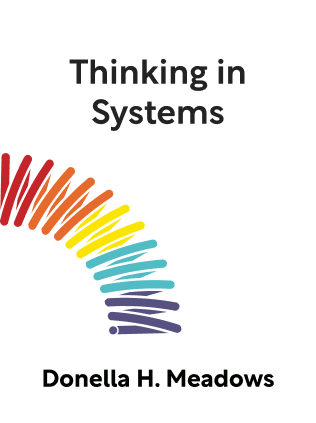

This article is an excerpt from the Shortform summary of "Thinking in Systems" by Donella H. Meadows. Shortform has the world's best summaries of books you should be reading.
Like this article? Sign up for a free trial here .
How do you define tragedy of the commons when it comes to systems thinking?
The tragedy of the commons is a term to describe when actors all share limited resources, and act only in their own self-interest. In order to define tragedy of the commons, you first need to understand that it’s a part of the many systems limits that can stop a system from being successful.
Learn how to define tragedy of the commons in systems thinking.
Define Tragedy of the Commons: A Systems Failure
To define tragedy of the commons in systems thinking, you need to understand how it happens and why.
How It Happens
Part of being able to define tragedy of the commons of to understand how it happens. The actors in a system share a limited common resource. When the actor uses part of the resource, he receives all of the gain, but the cost of using the resource is spread among all the users. In sum, this usage is a net gain for the actor. Therefore, the rational behavior is to use as much of the resource as he can.
The problem is that all actors in the system are thinking this way too. As all actors act in their own self-interest, the common resource is eroded, possibly to the point of irrevocable destruction.
In essence, there is a weak feedback loop between the actor’s behavior and its future impact. It’s not clear the actor is behaving in a self-destructive way until it’s too late.
Examples of Tragedy of the Commons
Examples can help you define tragedy of the commons in systems thinking. The classic example is of a common pasture, where farmers each maintain a herd of cattle. Each farmer is incentivized to grow his herd—he gets all the benefit of the additional animal, but the cost of the animal’s grazing is shared by all the pasture owners. All farmers grow their herds as much as they can, and the tragedy arises when the pasture is destroyed and all the herds die from starvation.
Other examples include:
- Factories dumping pollution in a nearby river or land site. They gain all the benefit of removing the waste, while bearing only a small fraction of the environmental cost.
- Fishermen have the incentive to fish as much as they individually can, which can drive the fish species to extinction.
- Our collective use of fossil fuels may contribute to climate change, which can lead to devastating effects in the future.
Fixing Tragedy of the Commons
The Tragedy of the Commons occurs because there is missing feedback between the actor’s behavior and its consequences. The solution is to tighten this feedback loop, which can be accomplished in a few ways.
The first method is to educate the actors. Help them see the effects of their usage, persuade them to moderate their behavior, and hope that they self-regulate.
The second method is to parcel out the resource so it’s no longer shared. Here, the actor owns her own share of the resource, so she bears the consequences of her behavior.
Not all resources, like river water or fish in the ocean, can be divided, which leaves the third method: regulate the resource. Once the rules are set, all the actors trust that all the other actors will behave responsibly. This is also known as “mutual coercion, mutually agreed upon.” Examples include:
- As drivers, we agree with each other to obey traffic lights, even if that means we stop for other cars. This avoids the self-rewarding behavior of driving wherever you like, whenever you like.
- Broadcasting is regulated so that no actor can transmit at a specific frequency without a permit. Without this regulation, the airwaves would be crowded with competing signals, preventing any actor from fulfilling its goal.
- Parking spaces downtown are in high demand and are rented through parking meters. Otherwise, people would park wherever they chose, for however long they chose.
For regulation to succeed, it must be strictly enforced to discourage rulebreakers.
Now that you’ve learned how to define tragedy of the commons, you can hopefully avoid this type of system failure in the future.

———End of Preview———
Like what you just read? Read the rest of the world's best summary of Donella H. Meadows's "Thinking in Systems" at Shortform .
Here's what you'll find in our full Thinking in Systems summary :
- How the world, from bathtub faucets to fish populations, can be seen as simple systems
- The key system traps that hold back progress, such as escalating arms races and policy addiction
- Why seeing the world as systems can give you superpowers in work and life






